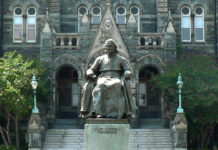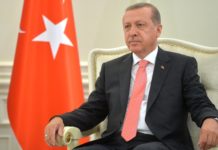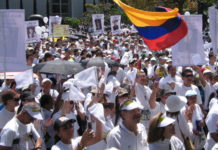![]()
In his third week in office, Brazilian President “Lula” da Silva has undertaken his first foreign trip to Buenos Aires. Lula’s first weeks have been turbulent after a number of former President Bolsonaro’s supporters stormed the Presidential Palace, the Supreme Court and Congress in Brasilia on Jan. 8. Fortunately, Lula was not in Brasília then, but thousands of rioters have been detained. Despite his narrow presidential election victory in October, Lula still faces substantial opposition from right-wing actors within the government and from police forces who support Bolsonaro and believe the election was stolen. Upon re-establishing his power in Brasilia, Lula reached out to his national leftist ideological brothers in Fernandez’s Argentina, Maduro’s Venezuela and Boric’s Chile for support. Lula, who had until recently been imprisoned on charges of corruption that occurred during his first two terms as president in the 2000s, has long been supported by President Fernandez and the influential Cristina Fernandez de Kirchner even during his imprisonment.
As the continent’s two largest economies, Argentina and Brazil have traditionally been each other’s largest trading partners and co-leads MERCOSUR (Mercado Común del Sur), a common market and trade bloc in South America. The recent leftward shift of South American politics left the right-wing Bolsonaro politically isolated from Peronist Argentina under Fernandez. Now, the region is ideologically back on the same page, and they hope to seize the opportunity to promote closer formal ties between the countries and defend them from resurgent attacks from the political right wing. The latest attempt at regional integration is the idea of a common currency called the peso real, managed by Brazil and Argentina. Despite the promise of increased cross border trade and more political stability, the project remains in its infancy and will face years of trials before actualization. Argentina’s chronic defaults on IMF emergency loans, high inflation, severe brain drain and crippled export production base are substantial barriers to integration with Brazil’s marginally stronger but resource-extraction-dependent economy. Economically and politically, both countries find themselves trying situations where monetary integration will likely augment rather than remedy their economic situations. With the current situation, it is unrealistic to earnestly believe Lula’s announcement is a future reality, especially with the turbulent October elections coming up in Argentina. Soon,this grand political project may be bookmarked until a later date as so many other grand schemes in the developing world. However, a more integrated MERCOSUR could still be a positive influence on South America’s economic trajectory.
On January 25th, the presidential candidate for the ruling Colorado Party in Paraguay, one of the few center-right governments left in South America, Santiago Peña, spoke at the School of Foreign Service. When asked about the leftward shift in Latin American politics and the future of MERCOSUR, he remained optimistic about the future of free trade and more harmonious regional ties despite political differences. Last spring, the former conservative President of Argentina and 2023 hopeful also spoke at the WalshSchool of Foreign Service presenting an alternative vision about the future of MERCOSUR cooperation. The evolving political landscape and a potential conservative backlash in the Southern Cone is something to watch out for in the near future.












